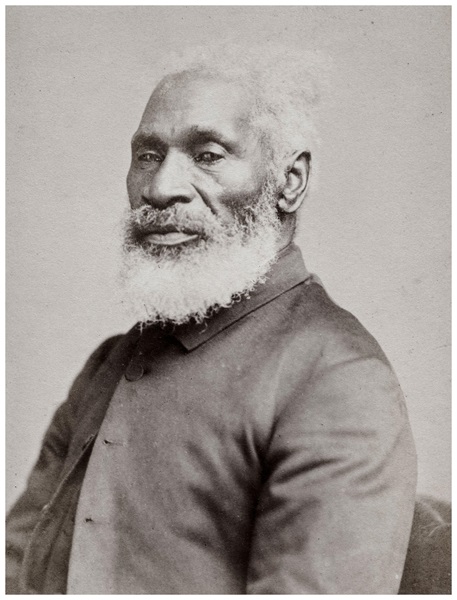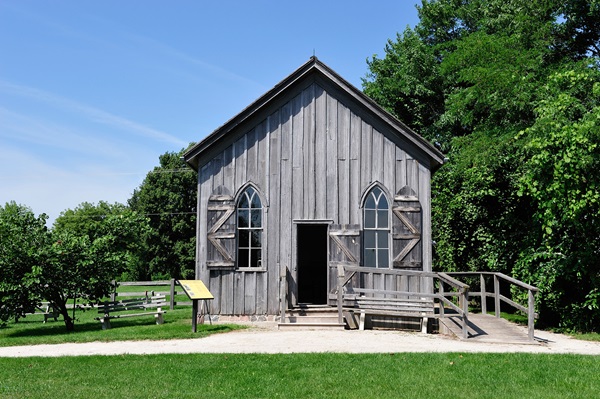One evening in the early 19th century, a young Black man made his way to a church to hear, for the first time, about the Jewish carpenter, Jesus. The young man was astonished. Could it be that the message he was hearing was for him? Did this Man, the Son of God, do all that He did for everyone, including a slave whose father had been beaten and mutilated for defending the honour of his wife, whose mother had prayed over him, whose life would be marked by the emancipation and education of many seeking freedom from oppression?
Josiah Henson chose to claim the words of Jesus for himself. This choice transformed him.
Born in the Deep South during the time of legal slavery in America in the late 1700s, Josiah was one of six children. Having already lost his father to the slave trade, he was on the verge of being ripped from his mother’s grasp before his sickliness saved him. Deemed too unwell to be sold off, he remained with his mother; they both served under the same slave master, Isaac Riley. Josiah would grow to be a burly man and a generous one as well, ensuring that his fellow slaves were fed with food he would steal from their masters.

His heart was as big as his physique, but he wasn’t invulnerable. In an especially memorable and cruel confrontation with another slave master, Bryce Litton, his shoulder blades were crushed by repeated blows from a wooden plank. He was nursed back to health, but this incident removed Josiah’s ability to raise his arms above his head for the remainder of his life.
Despite his physical pain, his spirit remained robust in love and in spreading the message he had received as a young man about the Messiah, Jesus. Josiah experienced a level of conflict as a preacher: was he really leading people to salvation or just placating the fears they were suffering from in their oppression?
Time would pass and through a series of events Josiah would eventually make his way to Dresden, Ont., where he and his family would settle. His story, as triumphant as it already was at that point, didn’t end there. Josiah would serve his fellow slaves who were also able to make their way to Canada. He would teach them and enable them to live off the land, making new lives for themselves. In addition, he built a church that invited people to know the same Lord and Saviour he knew who had led him through extremely difficult and trying times. His other accomplishments included setting up the British-American Institute of Science and Industry, the first trade school in Canada created for the sole purpose of equipping freed slaves who were successful in making their way to the Great White North. Sawmills and gristmills also followed, as well as the establishment of an independent and self-sustaining Black community in Dawn, Ont., with a population of 300. He did all of this on 200 acres of land that he bought with his own money. He also served in the Canadian Rebellions of 1837 and 1838 as a leader of the Black volunteer soldiers. The man slavery could not break was helping others who had endured a similar experience to become whole.
If Josiah Henson’s story sounds familiar, it’s because it was the basis of Harriet Beecher Stowe’s book Uncle Tom’s Cabin, which was said to be the bestselling book of the 19th century. His voyage from America to Canada, with family in tow, and his consequent settling of not only his family but many other freed slaves, established Henson as one of the most important Black residents in Canada’s history.
Josiah Henson’s story is astounding. His tendency toward benevolence when he could have chosen a darker path makes him an outstanding figure. The man who, in his youth, was struck across the back of the head for the “crime” of wanting to make himself literate, was the same man who remembered that his brothers and sisters in chains were suffering a similar fate, if not worse.
Josiah wasn’t perfect. He made mistakes, some of which were seen as crimes against his own people. He neglected some he could have helped, who later suffered as a result of his decision. He also made the mistake of trusting Isaac Riley, who had encouraged him to “freedom”—only to betray him when it was convenient. Like any of us, not all of his judgments were sound. Like the best of us, he allowed his compassion for others to supersede the weakness of his humanity and became a blessing to many. Josiah’s experience of the goodness of God through Christ led him to share the goodness of Christ with others.

Henson’s life brings to mind these words of the Apostle Paul from his second letter to the Corinthian church: “Praise be to the God and Father of our Lord Jesus Christ, the Father of compassion and the God of all comfort, who comforts us in all our troubles, so that we can comfort those in any trouble with the comfort we ourselves receive from God” (2 Corinthians 1:3-4). Amid all of his hardships, Henson knew the comfort of God through the presence of Christ, his Saviour. Henson chose to take his life of mistreatment and turn it into a life of blessing.
The times we live in today demand no less of us. As it was in Josiah’s time, so it is now: many Black people are crying out to be heard, for their pain to be validated, and for their rights to be respected. Many have suffered, and are suffering, an oppression that threatens their identity and dignity. Some are taking their pain and expressing it in unhealthy ways, while others are withdrawing. However, the best of us are following the examples of Josiah, of the Apostle Paul, and of Jesus Christ Himself: they are turning their lives of mistreatment into lives that seek to bless others.
When the temptation arises for us to choose between repaying evil with evil, responding to violence with violence, or to slander the slanderers, there shouldn’t be any choice but to remember that the One we mistreated the most is the One who allowed Himself to be captured and broken in our place. His sacrifice has set us free to see to it that cries for justice don’t go unheeded, but that true justice is meted out in light of God’s gift of mercy—His only begotten Son. These days we can thank God for our freedom and express our gratefulness by looking behind us, seeing who is following, and helping them to establish themselves in a new land built upon faith, hope and love.
We thank You, Jesus, for Josiah Henson, and for all of those who were freed from slavery and who thought of others in their liberty.
Duane Henry serves as senior pastor of Life Community Church in Dundas, Ont., alongside his wife, Charlene, and their two children. Visit www.lifecommunitychurch.ca or follow them on Facebook.com/LCCDundas, on Twitter @LCC_Dundas, on Instagram @life_community_church_dundas, and on YouTube: Life Community Church Dundas.
First image above: Rev. Josiah Henson
Second image above: Pioneer Church on Uncle Tom’s Road, slightly southwest of the community of Dresden, Ont. The building is representative of the churches in which Reverend Henson preached. It was constructed c. 1850 and moved to its current site in 1964 (visit historicplaces.ca).
Resources:
- Jared A. Brock, The Road to Dawn: Josiah Henson and the Story that Sparked the Civil War (New York, NY: Public Affairs, 2018).
- Paul Richardson and Bob Beasley,One Dominion: Celebrating Canada - Prepared for a Purpose (Grimsby, ON: Bible League Canada, 2017).
- "The Life of Josiah Henson, Formerly a Slave, Now an In habitant of Canada, as Narrated by Himself," Documenting the American South, accessed October 18, 2020, https://docsouth.unc.edu/neh/henson49/summary.html.
This article appeared in the January/February/March 2021 issue of testimony/Enrich, a quarterly publication of The Pentecostal Assemblies of Canada. © 2021 The Pentecostal Assemblies of Canada. Photos © alamy.com.